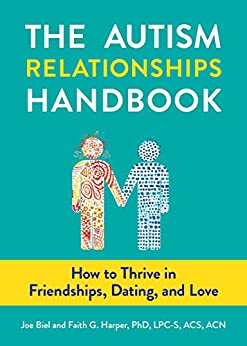More on this book
Kindle Notes & Highlights
by
Joe Biel
Read between
January 17 - January 17, 2024
It’s important for us to recognize that we are unreliable narrators about the facts of our own realities. Our sensors become too subjectively attuned and you are more likely to remember the emotional experience of how something felt, rather than the material facts of what happened. Accepting this can be very difficult because your reality is so convincing. When others disagree, it can feel like they are trying to overwrite our emotional experiences with their own.
Many autistic people are frustrated with the fact that they have feelings (feelings aren’t very logical), have trouble accessing their own emotions, or simply become frustrated with the feelings that they are having and how they are an impediment to what they want in the moment.
Feelings are just information from our body, encouraging us to do more of one thing and less of another,
You will often feel a disconnect or a betrayal between your body and your mind as values from your upbringing are instilling feelings that you don’t want to have because they aren’t consistent with how you see the world now.
More mistakes will lead to more experience and thus a better understanding of what someone is asking or expecting of you.
allistic people tend to enjoy conversations about needs and expectations in a relationship.
Sometimes you will hold someone in a higher regard than others, perhaps because they are a hero or someone that you respect. Maybe they’ve taken care of you in the past or you just have tremendous appreciation for what they apply themselves to. This can lead to outsized expectations and disappointments when they prove to be mortal and make mistakes. Think of them as someone who, like you, screws up sometimes. It can be painful and sad, but take some time to sit with these feelings and make a careful choice about how to react.
Most people aren’t experts in everything. If we don’t have room to make mistakes and have a learning curve, we have a problem.”
You don’t need to agree but you need to respect each other and understand where the other is coming from.
If you’re outraged at someone who has hurt you, coming at them with your anger isn’t going to change their behavior or facilitate growth.
There are two standout tendencies for autistic people in relationships even more than the general population. First, we tend to “scorekeep,” making points for each time we do something that we consider thoughtful or nice for someone else and subtracting a point when they do things that we consider thoughtful or nice for us. There are numerous problems with this. For one, we can’t know someone else’s intentions. Perhaps they do many nice things for us every day that we don’t notice or appreciate. Worse, when we withhold being nice to someone for the sake of the score, the relationship falls
...more
Scorekeeping also leads to the other common problem: taking the moral high ground.
But nobody cares if you are the righteous party. It changes nothing. You aren’t making a case. You are just setting yourself up to get hurt more. Ask
Ask yourself: Am I behaving towards myself and to others in a way that is authentic and intentional? Am I compromising or cutting corners? Is my expression consistent with my intentions? Is it coming through to others? Am I hiding parts of myself? I
Hurt feelings are about impact, not intention.
You can’t control what the person is feeling or how they react, but you can try to understand it and sometimes an apology is helpful to diffuse the situation or even for safety.
Your feelings are your own, but you don’t have a right to other people’s attention
Just like yourself, everyone has boundaries. Remember, boundaries are the limits on how we allow ourselves to be treated to protect things that are yours—like your body, beliefs, choices, time, money, feelings, or investment—from being taken away from us without our consent.
The other reason for communicating clearly, asking for clarification, listening, and responding appropriately is that there are also cultural differences in how different people communicate, as well as in things like personal space. People, such
the simple act of smiling at a stranger could literally change the endorphins in their brain, their mood, and their entire day.
If you hurt someone’s feelings, apologize for what you did that hurt them, and attempt for it not to happen again.
Allistics also put an unhelpful layer of supposed meaning into everything. Like if we give them a flower, that doesn’t communicate to them “you like flowers.” Somehow it says “I have an emotional investment and possibly romantic interest in you.” If you check your phone while they are talking, they assume you are bored or not invested in what they are saying.


